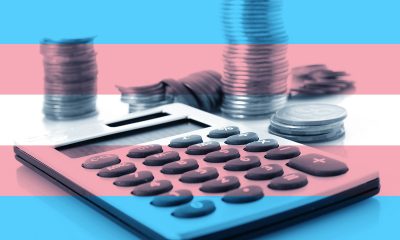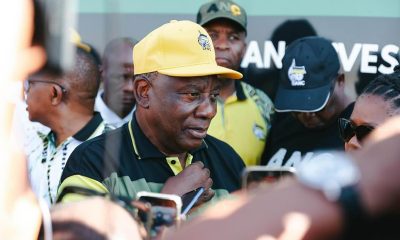World
Transgender USAF veteran trapped in Taliban takeover of Kabul
Josie Thomas remains in Afghanistan

As the government of Afghan President Ashraf Ghani collapsed and he has now fled the country, chaos has descended on the Afghan capital city. Late reports Sunday indicated Afghan security forces had abandoned their posts which were quickly taken over by the Taliban insurgents.
Among the Americans now trapped in the suburban areas of Kabul under Taliban control is Josie Thomas, 32, a Transgender government contractor for the U.S. State Department and former U.S. Air Force Sergeant. Thomas along with several others are trapped at the diplomatic support facility known as Camp Alvarado located on the outskirts of the capital city’s airport.
Thomas, in a series of text messages provided to the Blade on background by a colleague of hers, relayed that she and others were aware of the immediate presence of the Taliban insurgents, which was communicated at the time Afghan security forces had abandoned their posts. The texts also expressed frustration at the lack of communication regarding the lack of a presence of U.S. military forces to assist.
Thomas has been communicating with colleagues and friends in the United States in real time as the situation unfolds.
UPDATED at 3:30PM Pacific Time Sunday August 15 (U.S.) One of her colleagues communicating with Thomas received a text from her stating that elements of the United States Army’s 82nd Airborne Division had arrived at the Camp Alvarado diplomatic support facility;
“Just talked to her again for several minutes. The 82nd has taken control of her compound and there’s a clear route from there to the flight line now. That the place is looking like a refugee camp with the amount of displaced coalition personnel and there’s no aircraft coming in to evacuate people yet.”
The United States Embassy in Kabul issued a warning to remaining Americans to not head to Kabul’s international airport after reports indicated that the facility was taking fire from Taliban fighters.
“The security situation in Kabul is changing quickly including at the airport,” the embassy said in a statement. “There are reports of the airport taking fire; therefore we are instructing U.S. citizens to shelter in place.”
The New York Times and major wire services reported that at 6:30 p.m. local time, the Taliban issued a statement that their forces were moving into police districts in order to maintain security in areas that had been abandoned by the government security forces. Taliban fighters, meeting no resistance, took up positions in parts of the city, after Zabiullah Mujahid, spokesman for the Taliban, posted the statement on Twitter.
“The Islamic Emirates ordered its forces to enter the areas of Kabul city from which the enemy has left because there is risk of theft and robbery,” the statement said. Mujahid added that the Taliban had been ordered not to harm civilians and not to enter individual homes adding, “Our forces are entering Kabul city with all caution.”
President Joe Biden who is spending the weekend at the Presidential retreat Camp David in the Catoctin Mountains near Thurmont, Maryland, participated in a series of video conferences regarding the rapidly changing situation on the ground in Kabul.

“This morning, the President and Vice President met by secure videoconference with their national security team to hear updates on the drawdown of our civilian personnel in Afghanistan, evacuations of SIV applicants and other Afghan allies, and the ongoing security situation in Kabul.
The President and Vice President met with Secretary Blinken, Secretary Austin, Chairman Milley, Director Burns, Director Haines, National Security Advisor Sullivan, Ambassador Wilson, Ambassador Khalilzad, General McKenzie, and other senior officials,” a White House official said.
President Biden ordered an additional 1,000 U.S. troops for deployment to Afghanistan Saturday, raising the overall number of U.S. military personnel to 5,000 that were sent to ensure what what the President defined as an “orderly and safe drawdown” of American and allied personnel.
UPDATED AUGUST 15 Sunday evening: The Department of State and Department of Defense issued a joint statement updating the situation in Afghanistan;
At present we are completing a series of steps to secure the Hamid Karzai International Airport to enable the safe departure of U.S. and allied personnel from Afghanistan via civilian and military flights.
Over the next 48 hours, we will have expanded our security presence to nearly 6,000 troops, with a mission focused solely on facilitating these efforts and will be taking over air traffic control.
Tomorrow and over the coming days, we will be transferring out of the country thousands of American citizens who have been resident in Afghanistan, as well as locally employed staff of the U.S. mission in Kabul and their families and other particularly vulnerable Afghan nationals.
And we will accelerate the evacuation of thousands of Afghans eligible for U.S. Special Immigrant Visas, nearly 2,000 of whom have already arrived in the United States over the past two weeks.
For all categories, Afghans who have cleared security screening will continue to be transferred directly to the United States. And we will find additional locations for those yet to be screened.
RELATED: Kabul falls to Taliban
Africa
Ugandan president meets with US ambassador
Unclear whether William Popp raised Anti-Homosexuality Act

Ugandan President Yoweri Museveni on May 10 met with U.S. Ambassador to Uganda William Popp.
Museveni in a post to his X account described the meeting, which took place at his official residence in Entebbe, as “productive.”
“We discussed key issues, such as the upcoming Census, regional peace, and socio-economic development. I emphasized the need for an inclusive census for informed decision-making,” said Museveni. “I also shared my views on fostering peace and security in the region. Additionally, we discussed opportunities in transitioning our population from a rural-based pre-capitalist society to industry and services.”
I had a productive meeting with the US Ambassador to Uganda, H.E William Popp, at State House Entebbe. We discussed key issues such as the upcoming census, regional peace, and socio-economic development. I emphasized the need for an inclusive census for informed decision-making.… pic.twitter.com/yHRZPHEltZ
— Yoweri K Museveni (@KagutaMuseveni) May 9, 2024
A statement the Ugandan Foreign Affairs Ministry released noted Popp “conveyed his appreciation for the president’s valuable time and wise counsel.”
“He also acknowledged President Museveni’s extensive knowledge and experience, underscoring the importance of their continued dialogue in fostering a strong and mutually beneficial relationship between the United States and Uganda,” said the statement.
The statement further notes Foreign Affairs Minister Jele Odongo; Defense and Veterans Affairs Minister Jacob Oboth-Oboth; Rosette Byengoma of the Defense Ministry; and Lt. Gen. Samuel Okiding, who is deputy chief of the Ugandan defense forces, attended the meeting.
The meeting took place nearly a year after Museveni signed the Anti-Homosexuality Act that, among other things, contains a death penalty provision for “aggravated homosexuality.”
The U.S. has sanctioned Ugandan officials and removed the country from a duty-free trade program. The World Bank Group also suspended new loans to Uganda in response to the Anti-Homosexuality Act.
The Ugandan Constitutional Court last month refused to “nullify the Anti-Homosexuality Act in its totality.” A group of Ugandan LGBTQ activists have appealed the ruling.
It is not clear whether Popp raised the Anti-Homosexuality Act with Museveni during their meeting.
The State Department referred the Washington Blade to the U.S. Embassy in Kampala, the Ugandan capital, for comment. The embassy did not respond to a request for comment.
World
Out in the World: LGBTQ news from Europe and Asia
Nonbinary Swiss singer Nemo won this year’s Eurovision

EUROVISION

Swiss singer Nemo won the Eurovision Song Contest with their operatic pop-rap song “The Code” about their journey to accepting their nonbinary identity.
“I went to hell and back, to find myself on track, I broke the code,” Nemo sang in the chorus of their winning song.
Dressed in a frilly pink blouse and miniskirt, Nemo dazzled the audience at the Malmö Arena in Sweden, home to last year’s winner, Loreen.
Nemo’s win is the first win for Switzerland since Canadian singer Celine Dion competed under the Swiss flag in 1988.
The Eurovision Song Contest is an annual competition held by the European Broadcasting Union since 1956, in which representatives of all member states present original songs. The entrants are voted upon by a panel of judges and by viewing audiences, who award points to their 10 favorite performances.
Over the years, the competition has become well-known as a camp spectacle and a favorite event for the European LGBTQ community, with many high-profile queer competitors and winners, including Austrian drag queen Conchita Wurst, who returned to this year’s show to perform a tribute to ABBA, who won the competition for Sweden with the song “Waterloo” in 1974.
This year’s UK entrant was nonbinary performer Olly Alexander, formerly of the band Years & Years. Their song “Dizzy,” a homoerotic pop-dance track that featured a quartet of dancing boxers, finished in 18th place with only 46 points, after receiving no points from the voting audience.
This year’s competition was not without controversy.
The venue was met with a large protest demanding that Israel, which has competed in Eurovision since 1973, be removed from the competition due to the ongoing war in the Gaza Strip. Additional security measures were put in place for the competition
Israel’s entrant, Edan Golan, had been a favorite early in the competition, but her song “Hurricane” finished fifth. The song had also drawn controversy, and Golan was ordered to change the title and lyrics by the EBU from “October Rain” due to its references to the Oct. 7 attacks on Israel.
Golan travelled with agents of the Israeli Security Agency Shin Bet after death threats were made on her social media.
Additionally, Dutch performer Joost Klein was disqualified ahead of the final competition after an alleged altercation with a female production staffer that has led to a police investigation.
UNITED KINGDOM

Actor Ian Gelder, best known for his role as Kevan Lannister in the HBO series “Game of Thrones,” has passed away at age 74, five months after he was diagnosed with an aggressive form of cancer.
Gelder’s husband, Ben Daniels, announced his passing in a post on Instagram on Tuesday.
“It is with huge, huge sadness and a heavy heart broken into a million pieces that I’m leaving this post to announce the passing of my darling husband and life partner Ian Gelder,” Daniels wrote in the caption of a photo taken of the couple at Christmas, shortly after Gelder’s first round of treatment for his cancer.
“He was my absolute rock and we’d been partners for more than 30 years. If we weren’t together, we spoke to each other every day. He was the kindest, most generous spirited, and loving human being. He was a wonderful, wonderful actor and everyone who worked with him was touched by his heart and light,” Daniels wrote.
Gelder was diagnosed with bile duct cancer in December. Such cancers are often not detected by health care providers until they have spread to other parts of the body.
Gelder had a long career in film and television and on the British stage, frequently appearing in London’s West End and Shakespeare’s Globe Theatre.
Among his numerous television appearances was a stint on the “Doctor Who” spinoff “Torchwood,” and the celebrated UK sitcom “Absolutely Fabulous.”
POLAND
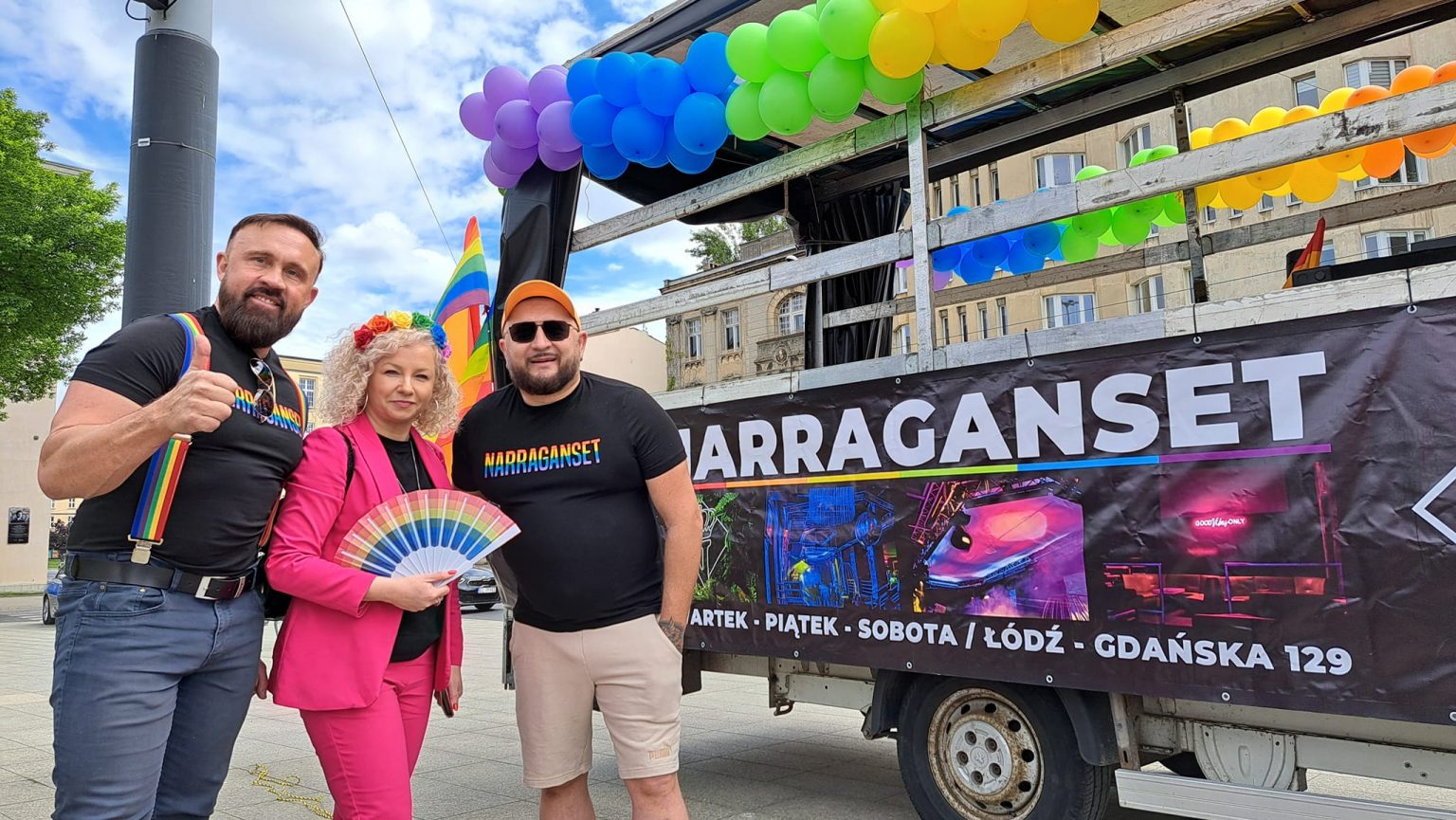
Declaring that she would “go to hell and make a deal with the devil” to advance the rights of Poland’s LGBTQ community, Equalities Minister Katarzyna Kotula joined the Equality March in Łódź, the country’s fourth-largest city, on May 11.
The march was the 13th edition of the event, and the first time it had been attended by a government minister.
Last year, Poland elected a new government coalition of center-left leaning parties that have pledged to support LGBTQ rights, a sharp contrast to the right-wing, LGBTQ-hostile government that preceded them.
Still, the government has been slow to act on its stated promises to the LGBTQ community, including a law on civil unions, a ban on hate speech, and a gender recognition act, amid squabbling from more conservative members of the coalition.
Kotula has said that she’s waiting to introduce the civil union bill until she can get agreement from the coalition on key sticking points, including adoption rights.
“For civil partnerships, for marriage equality, for the Gender Reconciliation Act, for dignity and human rights for the LGBT community, I will go to hell and make a pact with the devil. I promise that when we meet here next year, at least some of these demands will be implemented,” Kotula said at the march. “I will do everything to take care of your dignity and your safety.”
The organizers of the march, the Equality Factory, are calling for even greater rights, including full marriage equality, abortion and contraception rights, comprehensive sex education in schools, and facilitation of medical treatment for gender transition.
“We are marching because words about equality cannot be thrown around. We are not a bargaining chip. We were promised something and the election promises should be fulfilled. The most important requirement to be implemented is the act on civil partnerships. This is not only about LGBTQ+ people, but also about protecting heterosexual people in relationships, because there is no such thing as cohabitation in Polish law. This should be important for all Poles,” Ida Mickiewicz-Florczak from the Equality Factory told the Polish news site Odaka.
Even if the civil partnership law passes through Parliament, it may face a veto from President Andrzej Duda of the opposition Law and Justice Party, which has vociferously opposed LGBTQ rights. So far, Duda, who will be in office until presidential elections in May 2025, has not indicated how he will act on the bill, stating he’s waiting until it is introduced to comment.
SOUTH KOREA

The Seoul Queer Culture Festival has found a new home after two years of struggle with the city council repeated denying permits for the annual festival.
The Queer Culture Festival had been held at Seoul Plaza at City Hall ever since 2015, but last year it was denied a permit, which the conservative-leaning city council decided to give to a Christian youth concert instead. This year, the city council has announced that the plaza is being used for a outdoor library all through spring and summer, effectively blocking all event applications.
“I think Seoul city is focusing on events that only suit its taste,” Yang Sun-woo, chief organiser of the festival, told Reuters. “If Seoul cared about LGBT people, they would have understood the significance of the event.”
In response, organizers of the Queer Culture Festival have decided this year’s edition will take place on a several blocks in downtown Seoul, which only required the permission of police, rather than city council.
The festival, which takes place over two weeks in June, kicks off with a parade on June 1 and will feature a queer film festival, live performances, and 60 booths for vendors and interactive events.
For its part, Seoul City Council denies that anti-LGBTQ discrimination played a part in its decision to twice deny permits for the event.
The city government said it is “always listening to voices and providing necessary support to protect human rights of LGBTQ people as members of society,” in a statement.
The Queer Culture Festival was also denied a permit by the Seoul History Museum.
The U.S. Embassy in Seoul will also support the event, as it has in previous years.
“As in past years, embassy representatives will join in Pride events worldwide, including here in the Republic of Korea, to raise awareness of the challenges faced by LGBTQI+ individuals,” the embassy told Reuters in a statement.
AUSTRALIA
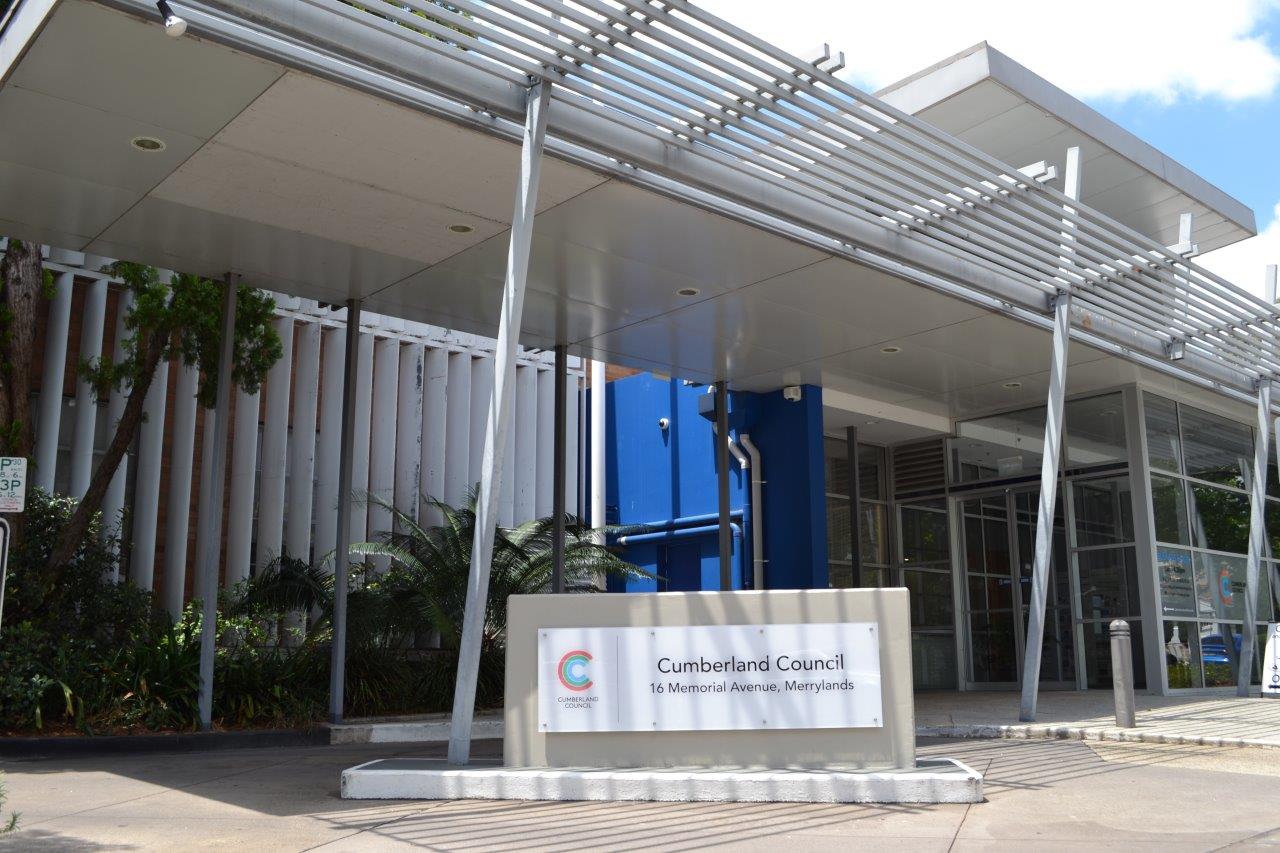
Cumberland in New South Wales drew international headlines this week after its city council voted 6-5 to ban books on same-sex parenting from local libraries. Four council members were not present for the May 1 vote.
The motion amends the council’s library strategy to order “that council take immediate action to rid same sex parents books/materials in council’s library service.”
The move from the council, which represents around 250,000 people in the western suburbs of Sydney, was swiftly condemned by residents, LGBTQ leaders, and representatives of the state government.
New South Wales Attorney General Michael Daley has referred the motion to the state’s Anti-Discrimination Board for advice, while Arts Minister John Graham has warned the council that the new policy directive puts state library funding for the council in jeopardy, as it would breach public library guidelines. He’s asked council to reconsider the ban.
“It’s a terrible message to send, to have this councilor importing this US culture war into our country and playing it out on the shelves of the local library,” Graham said on a morning television show. “I think the community expectations are clear — the local councilor should be coming around to pick up their bin, not telling them what to read.”
Cumberland’s local council is dominated by the relatively LGBTQ-friendly Australian Labor Party, but the motion from Our Local Government Party Councilor Steve Christou carried with support from Liberal-Party-affiliated Independents and a single vote from a Labor councilor, who has since been condemned by the party.
The move comes just a few months after the same council voted to ban drag queen storytime events at local libraries.
Christou says the motion was inspired after he received complaints from constituents who saw the book “Same-Sex Parents” by Holly Duhig on display in the children’s section of a library. The book explores what it’s like to have two moms or two dads from a child’s perspective.
During the debate on the motion, Christou alleged that the book “sexualized” children and repeated dog-whistle allegations against queer people and parents.
“We’re going to make it clear tonight that … these kind of books, same-sex parents books, don’t find their way to our kids,” Christou said, according to the Guardian. “Our kids shouldn’t be sexualized.”
Christou said the proposed amendment was “for the protection and safety of our children.”
“Hands off our kids,” he repeated.
Christou has said the amendment was demanded by his community, which he says is a “very religious community,” despite the fact that a petition against the amendment garnered more than 10,000 signatures in 24 hours.
“This community is a very religious community, a very family-orientated community.
“They don’t want such controversial issues going against their beliefs indoctrinated to their libraries. This is not Marrickville or Newtown, this is Cumberland City Council.”
The petition was launched by a Cumberland area grandmother to what she describes as a “rainbow family” Caroline Staples. Staples will present her petition to the council on May 15.
Africa
South African president signs new hate crimes, hate speech law
Advocates largely welcome new statute
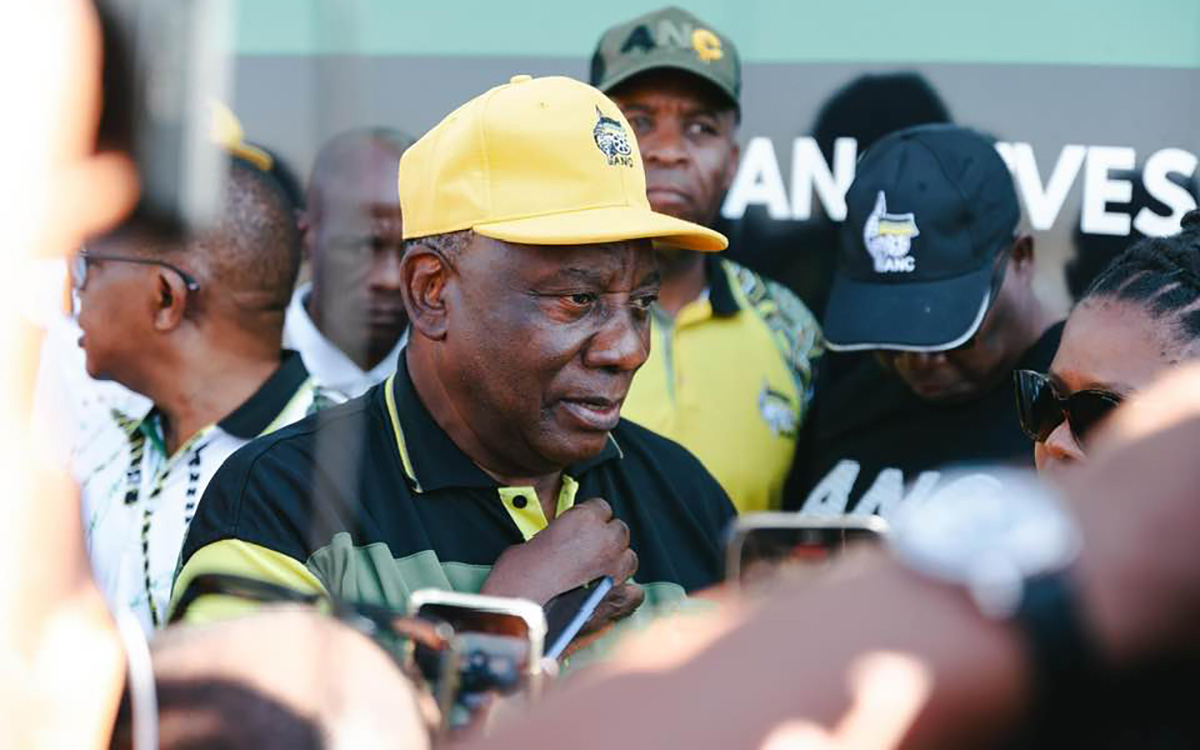
South African LGBTQ organizations have welcomed a new law that seeks to combat hate crimes and hate speech.
President Cyril Ramaphosa on May 9 signed the Preventing and Combating of Hate Crimes and Hate Speech Bill that had been introduced in 2018.
According to the new law; the direct or indirect unfair discrimination against anyone on the grounds of age, albinism, culture, disability, ethnic or social origin, gender, HIV status, language, nationality, migrant, refugee status, asylum seekers, occupation, trade, political affiliation, conviction, race, religion, sex, sexual orientation, gender identity or expression, sex characteristics or skin color is a criminal offense punishable by a fine or up to eight years in prison.
“A hate crime is committed if a person commits any recognized offense under any law that is motivated by prejudice or intolerance based on one or more characteristics or perceived characteristics of the victim, as listed in the legislation or a family member of the victim,” said the president’s office. “The law also makes it an offense when speech material is intentionally distributed or made available in electronic communication, and the said person knows that such electronic communication constitutes hate speech.”
Crimen injuria, the unlawful and intentional impairing of dignity or privacy of another person under common law, was in place before the new law. Crimen injuria, which to extent protected some forms of hate against the LGBTQ community, is still active.
The Preventing and Combating of Hate Crimes and Hate Speech Bill, however, is more comprehensive in the sense that it particularly focuses on hate speech and hate crimes, and therefore makes it easier to seek legal recourse than under crimen injuria.
“As Out, we commend President Cyril Ramaphosa on the move that he has made in making sure that the rights of LGBTQ+ persons are protected. We, as Out, also hope that other African countries can learn from this historic milestone that all people are equal and that their rights should be protected,” said Out LGBT South Rights Human Rights Coordinator Sibonelo Ncanana.
Ncanana specifically applauded Deputy Justice and Constitutional Development Minister John Jeffrey and the working group that helped secure the bill’s passage.
“We hope that all government departments will enforce the mandate of the act,” said Ncanana. “We also hope that it will help in decreasing the amount of hate crimes that are happening in South Africa, create safer communities, and that LGBTQ+ people will find themselves safe.”
Ruth Maseko of Umndeni LGBTI Group and the Triangle Project said the new law creates a precedent of what constitutes hate crime and the repercussions.
“We are delighted at the passing of the bill after so many years, as it creates a legal definition of hate crimes,” said Maseko. “This now puts in place mechanisms for authorities to collect and report details about these incidents of hate for the effective monitoring, analysis of trends, and appropriate interventions that are needed.”
Maseko added that although the new law will aid in giving the courts a framework to work in when handling cases of hate, it will not really deter people from committing those crimes.
“The new law will provide quantitative and qualitative data as currently we have no way of telling how many of these crimes are committed. The only way we know, is when they are reported to a civil society organization or are reported in the media,” said Maseko.
“Although it will do nothing to change the attitudes of people who act out in these ways, the law does send out a message that hate crimes will not be tolerated in South Africa and will provide additional tools to investigators and prosecutors to hold perpetrators accountable for their actions,” added Maseko.
The law, however, does not consider actions undertaken in good faith as part of hate speech. They include artistic creativity, performance or other form of expression, academic or scientific inquiry fair, and accurate reporting or commentary in the public interest.
It also excludes interpretation and articulating or espousing of any religious conviction, tenet, belief, teaching, doctrine or writing that does not advocate hatred or constitutes incitement to cause harm. The law also contains directives on training and other measures to be undertaken by the South African Police Service and the National Prosecuting Authority to ensure effective processing of the newly defined crimes.





